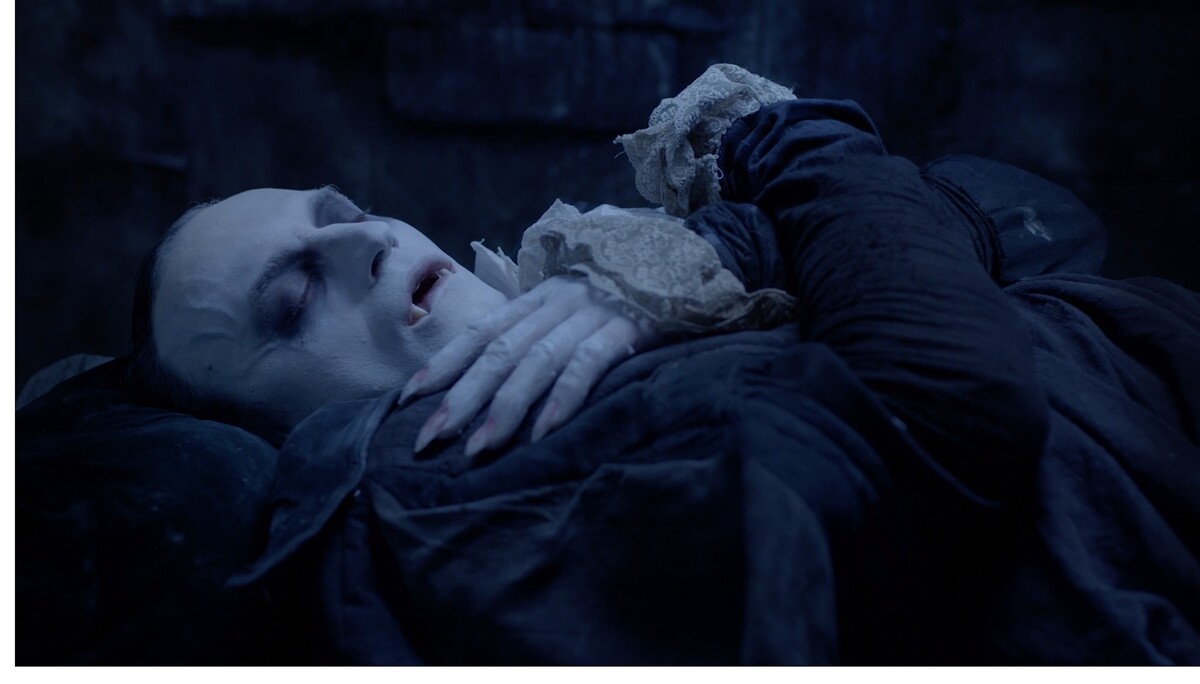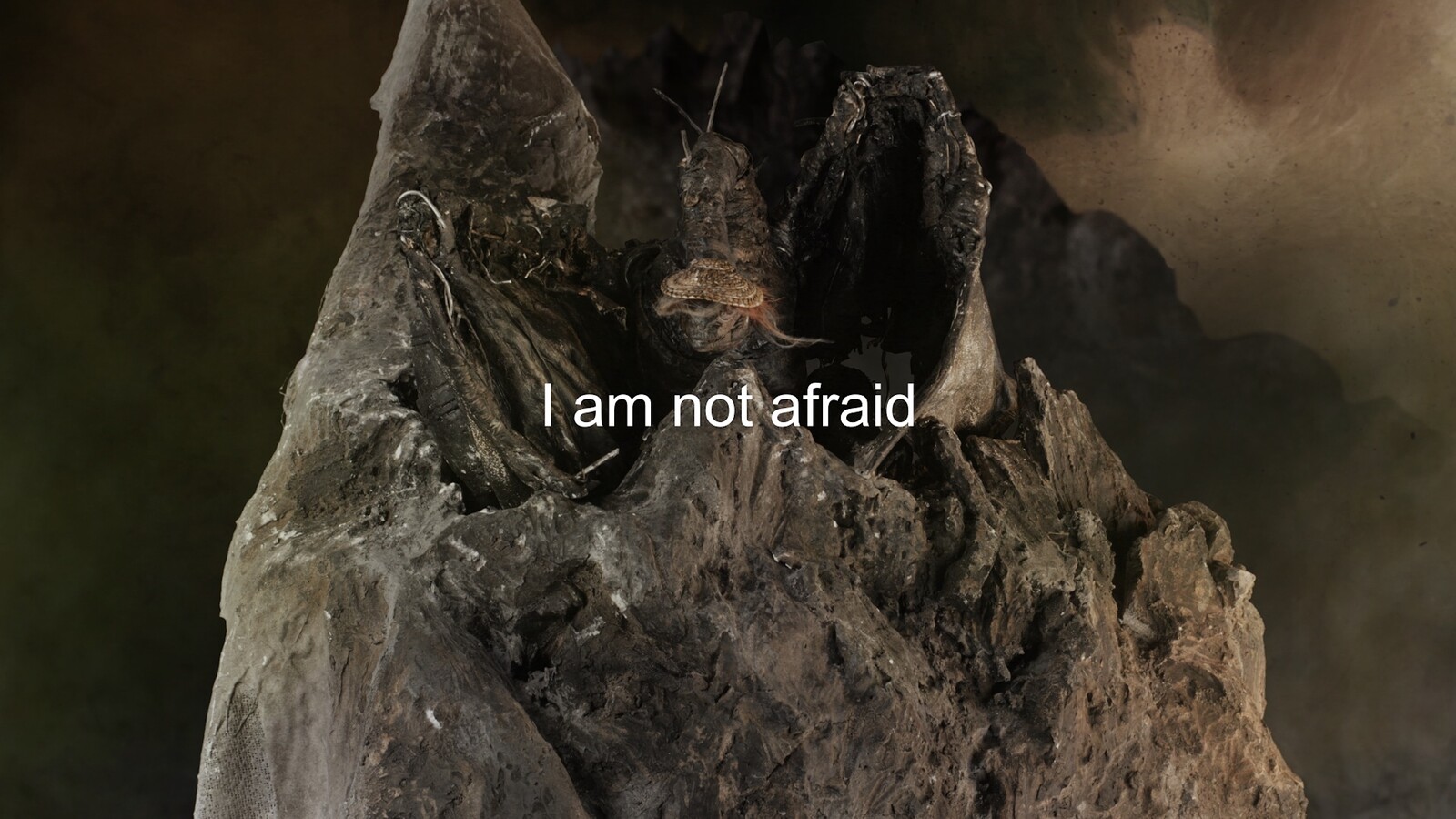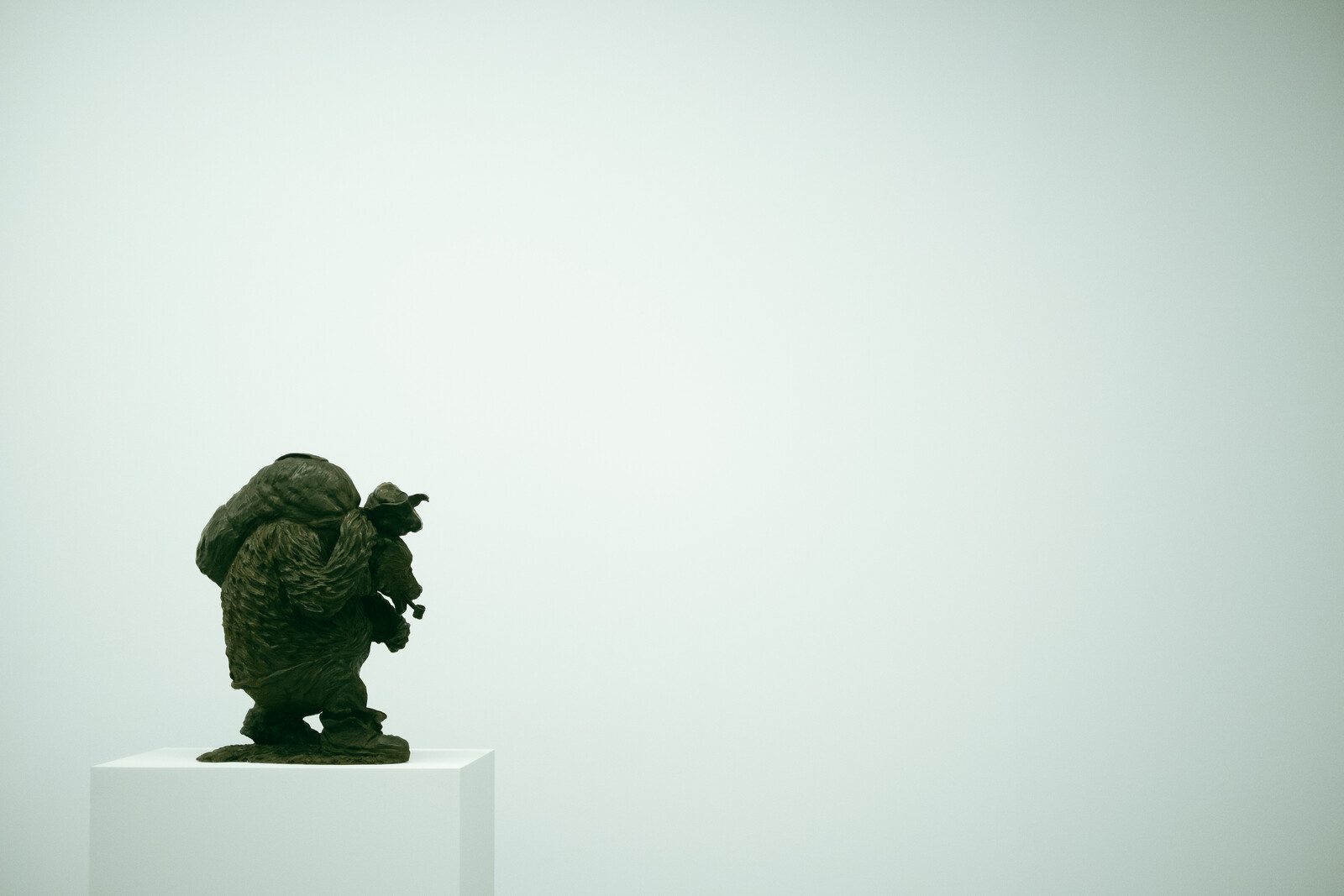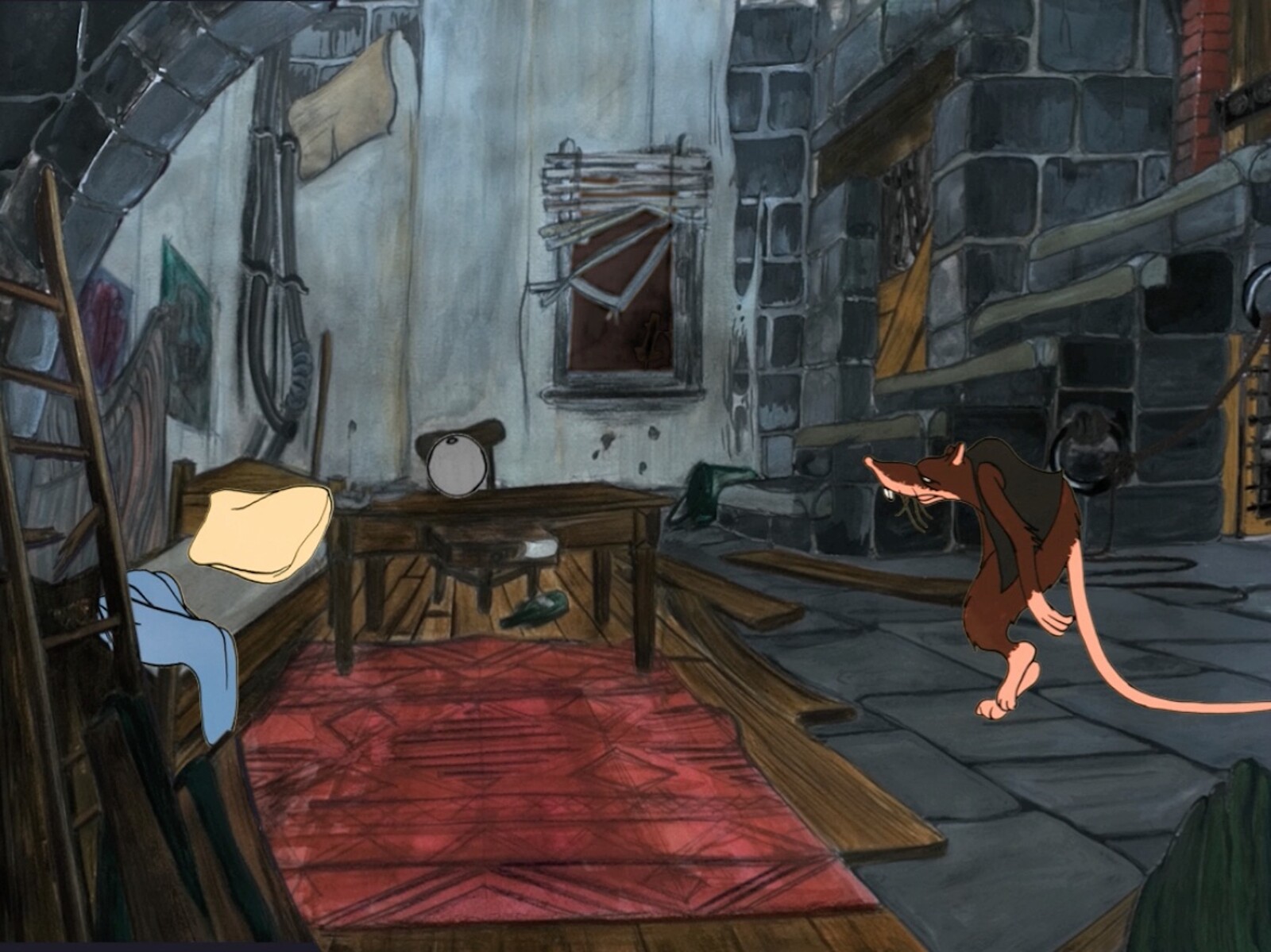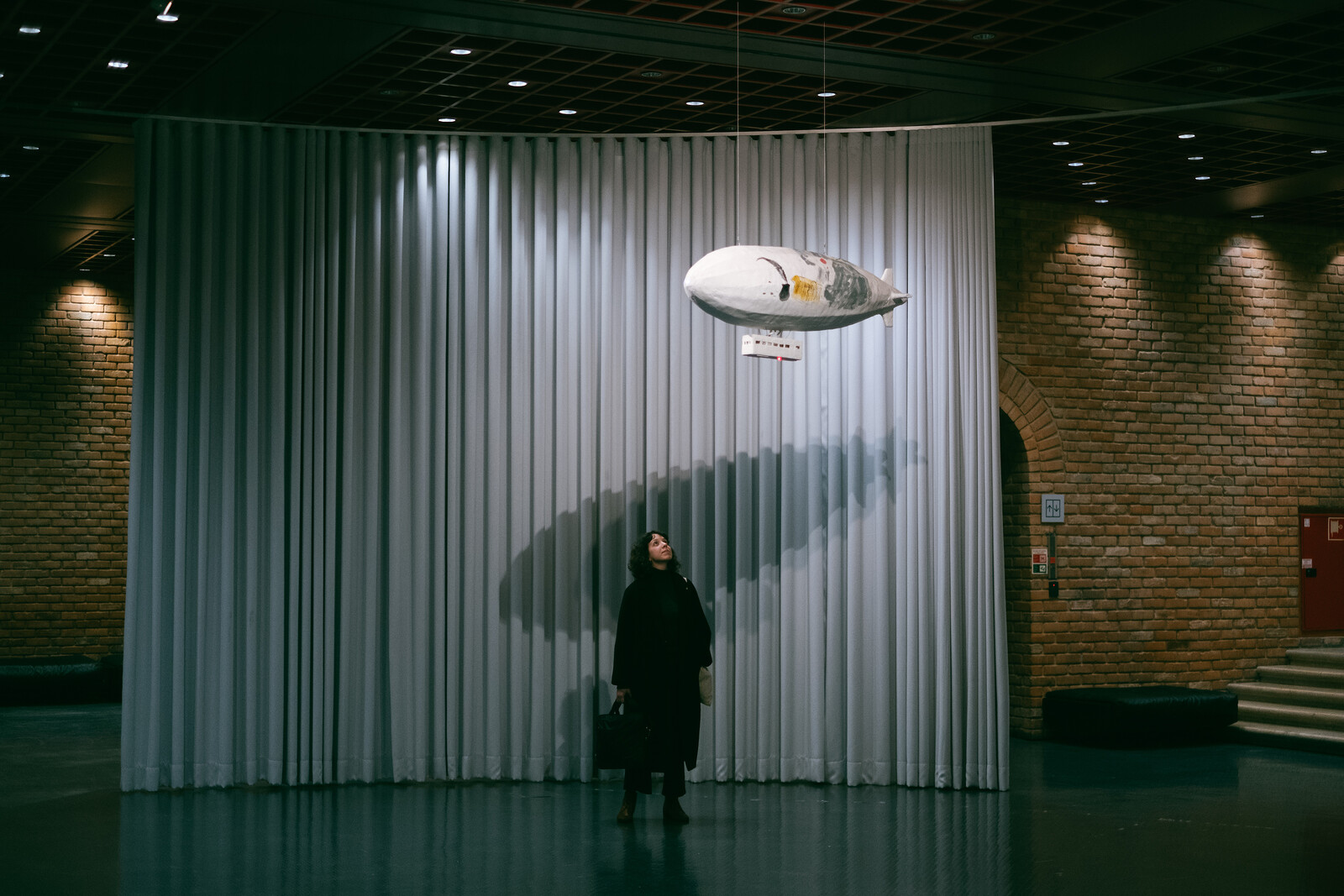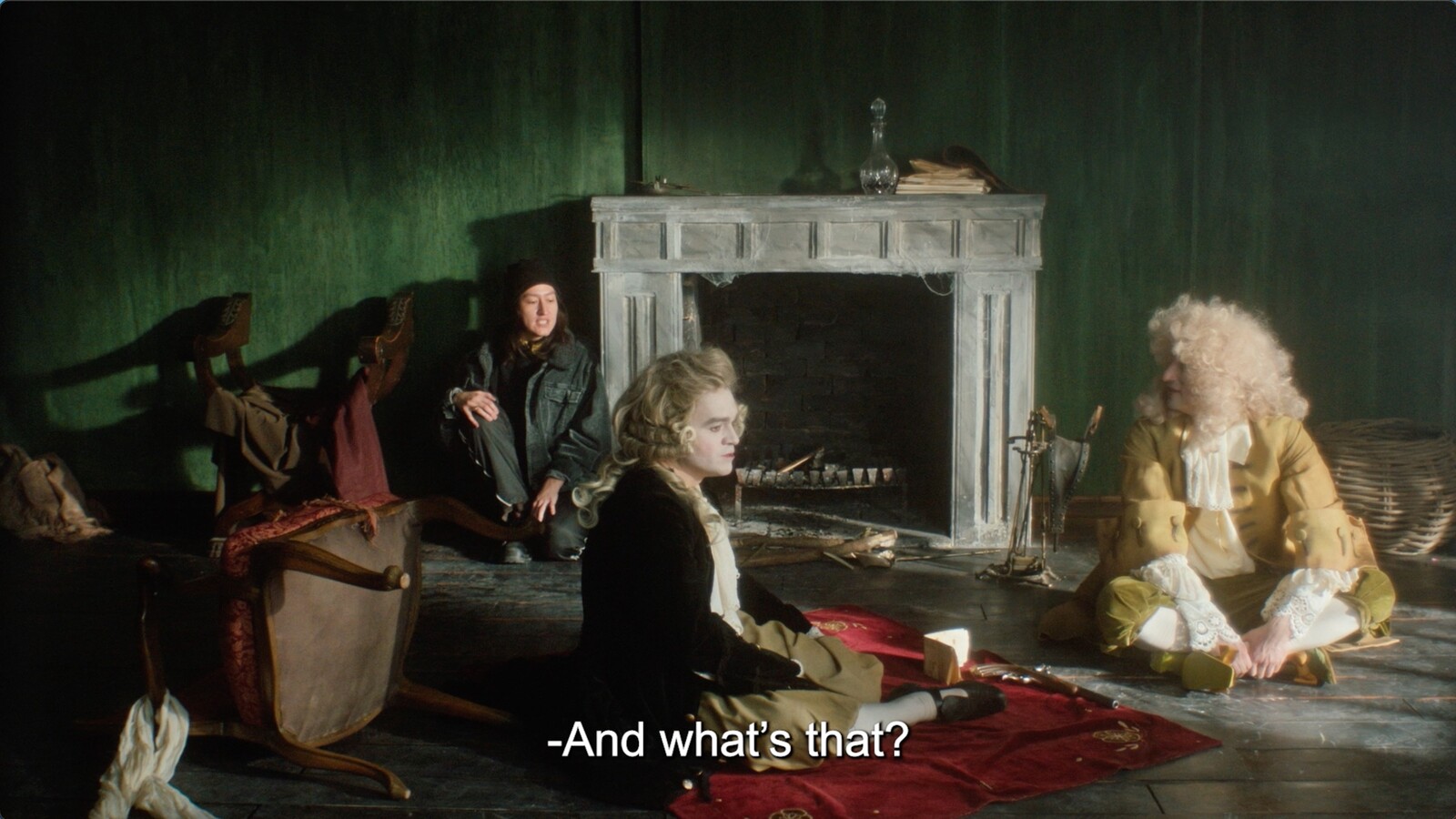In many of Peter Wächtler’s video works, nothing much seems to happen. In Untitled (Vampire) (2019)—one of four such works on show alongside a series of gesso and bronze sculptures of planes and animals in his first exhibition in Portugal—a Nosferatu copycat, living within the dusty and humid confines of a mountain castle, spends his time writing letters to be delivered at the nearby village; kisses his undead wife on a balcony at night; sleeps with his arms folded over his chest; then goes back to writing letters. In 2013’s animation Untitled (Rat), an anthropomorphic rat repeatedly wakes up in its bed, leaves, presumably goes about its life, and returns back home in the evening. All we are offered by way of context is a single, hand-drawn shot of the rat’s proletarian room. In 2018’s Untitled (Clouds), a quirky dragon with a cutesy straw hat flies about a landscape reminiscent of Conan the Barbarian. In Like a Palace (2022) a group of time travelers hop between epochs—the Stone Age; Ancient Greece; the Industrial Revolution; Late Capitalism.
All of these works, except the last, have circulated widely in museums and galleries. Like a Palace is a premiere, yet the complexity of the piece does not play to Wächtler’s strengths. In contrast to most other of his videos, where the narration is found either solely in text or in a monotone voice-over, this thirty-minute video combines staged dialogues with text slides that constantly interrupt the actors’ performance and the video’s pace. This dialectic is combined with one of the most bureaucratic plots I’ve seen in a while: it’s hard to understand exactly what the goal of these time travelers is, beyond following abstract rules, which makes for a colder experience than usual in Wächtler’s videos. While nothing much appears to happen in his earlier videos—at least in a superficial reading—their undercurrents are deep with emotion. Or rather, they capture an incapacity to emote or to escape mental loops, as in the routines he depicts; that vacant act of staring at life unfolding from an unbridgeable distance, the name for which might be depression.
In general—and in contrast to art forms such as cinema or literature—contemporary art is not the easiest place to find emotion, historically bound as it is by criticality. When was the last time you sobbed in an art show? Watching Wächtler’s brief tales of loneliness and endurance—the rat that wakes up every day despite life’s hardships; the vampire who keeps on living; the dragon who never loses faith—appealed more to my emotions than inviting critical thought. At the end of Untitled (Rat), when that cover of Bruce Springsteen’s 1980 ballad “The River” (one of his best) started, I could not help but smile and hum along as I left the room.
Perhaps it’s this emotional rawness that makes Wächtler’s show so frustrating. The installation itself felt incredibly plain and austere, with little to no care for light design or the sensorial quality of materials. While the videos have their own particular power to make one forget one’s whereabouts, the sculptures suffered from this choice. These consisted mainly of gesso airplanes and a set of anonymous busts, exhibited without much curatorial contextualization, and a small set of bronze sculptures of anthropomorphized animals: a bear with a pipe and a sack on his back; a bat in a hat, operatically bowing. Frozen in time, their actions reminded me of illustrations from fairy tales or old Disney cartoons, and while the link with the videos was there to be made, their bare installation did not provide an exhibition environment conducive to richer world-building by the viewer. Sitting in those rather inhospitable-feeling galleries, with their gray linoleum floors and acid-white walls, I left the exhibition wondering if its coldness was a product of its installation rather than the works themselves.
Then again, depression is not meant to be inspiring. Which may have been the point: an analytical, counterintuitive exercise in world-building, where the inhuman remoteness of the exhibition space, combined with the anonymity of the sculptural works and the distant gaze on the videos’ subjects, was integral to the narrative. And a reminder that a gallery can, at times, be akin to an impoverished rat’s disillusioned room or a vampire’s cobweb-filled castle—in which one can still find room for contemplation, and be in touch with oneself.
